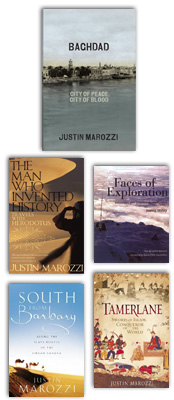“Did you hear? There’s a feminist flashmob going on in town.”
Not the sort of words you would necessarily expect to hear in the Somali capital.
“Say that again.”
“Somali women are demonstrating against rape and sexual violence.”
“It’s Valentines Day.”
“When did you last see a feminist rally in Mogadishu?”
“Let’s go.”
When you hear the words feminist flashmob, you drop whatever you’re doing and get on with it. You do in Mogadishu anyway. Sexual violence against women is a hot topic here. The most recent report on Somalia by the UN’s Secretary-General, published earlier this month, makes uncomfortable reading in places. It notes that more than 800 rape cases were reported in and around Mogadishu between September and November last year, the majority being internally displaced women and girls. The report doesn’t go into female genital mutilation, but that is an issue here, too.
I join several women with friends in high places and bump across town in a convoy, soldiers sitting in the back of a pick-up in front of us shooing other drivers away with rather more politesse than I have seen from American security companies operating on the streets of Baghdad. Then, clenched fists, hurling water bottles into car windscreens and pointing rifles at drivers’ heads were the favoured techniques. That didn’t go down well with Iraqis and it wouldn’t work with Somalis, either.
We arrive at a guarded compound, jump out of the cars and are instantly swallowed up by a cocoon of armed men who make a striking khaki contrast to the elegant women wafting by in multi-coloured splendour. There is a phalanx of women young and old wearing all-covering dresses in the Somali sky-blue flag with white star. Then there’s a largely male folklore troupe in white T-shirts with the legend “One Billion Rising – Strike! Dance! Rise! and then the glorious, improbable word ‘Somalia’.
Traditional dancing begins with men waving wooden spears and decorative diraa shields with coloured tassles. Men and women dance freely together, a freedom deeply rooted in Somali culture, something that was never understood by the Al Qaeda-allied insurgents of Al Shebab, who terrorised this city until 2011 and outlawed anything that even hinted at fun on pain of death.
Singers sway beneath a savage sun, belting out numbers that have the women in raptures. A drummer picks out a rhythm that combines with the streaming heat and hammers straight through my head. There are speeches from a human rights lawyer, the prime minister’s wife, who is also an MP and women’s rights activist and then Mogadishu’s answer to Boris Johnson, the Mayor of Mogadishu, a charismatic, rabble-rousing Cheshire cat with grey goatee beard and shades. His announcement that Michelle Obama and Hilary Clinton would be welcome guests in Mogadishu because they are supporters of today’s global campaign draws huge cheers, applause and high-spirited ululations. In one of the most touching moments of the morning, a group of teenagers – faces almost entirely hidden, for this could get them into trouble, or far worse – dance to a thumping Beyoncé tune, in a charming, slightly awkward hip-wiggling routine that has the mayor smiling more broadly than ever.
Our hostess for the morning is Deka Abdulkadir Ahmed, a handsome, feisty looking woman wrapped up in a red patterned hijab. The feistiness may be explained by Ms Ahmed’s special distinction in Mogadishu. She is the sole female District Commissioner in the city. The other 15 are all men. To say that takes some guts would be a wild understatement.
“Women are the same all over the world,” she says. “But what makes us special is that we have been through 23 years of war. I may be a District Commissioner, but I am also a woman and I feel the pain and suffering of Somali women. Hosting this campaign is a great honour for us as Somali women. It was a matter of life and death. We had to do it.”
Watching these women doing something as simple as coming together freely and defiantly, singing and dancing, rallying and protesting, is a moving experience, particularly when you consider that until very recently this sort of behaviour risked a public flogging or a bullet in the head. That nightmare already seems like a different era, but the heavy security presence testifies to the danger these women are still running just to come here. The sports compound is bristling with Kalashnikov-toting, red-bereted security forces who would be more than a match, one suspects, for Al Shebab if a rogue self-detonating maniac were foolish enough to try something.
Deka doesn’t mince her words when asked what her message is to Somali men. “I would like to tell them, that’s enough war, now we need peace. Every man has a female in his family – his mother, his wife, his daughter. I say to the men, protect your women. That’s your job.”
A young woman who is translating for me smiles at these last words.
“She’s a feminist, you see. We are very proud of her.”

